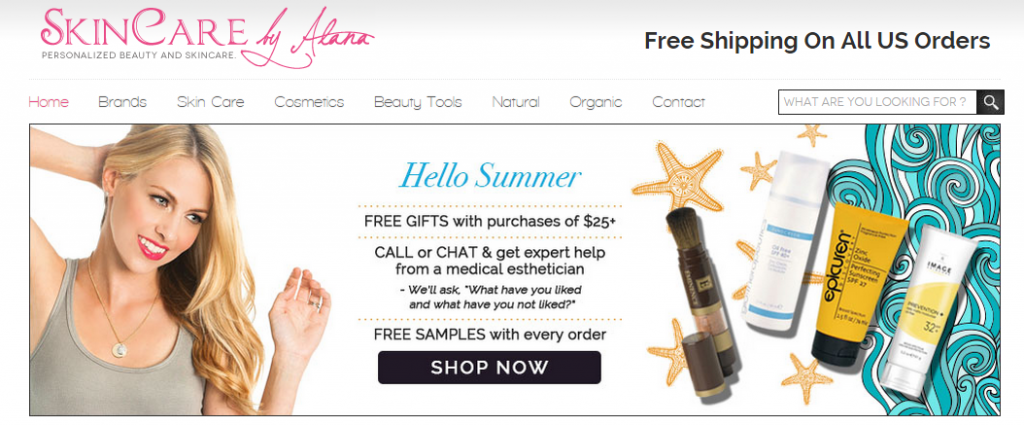How Retailer, Skincare by Alana Elevated Their Google Shopping Campaign

Prior to working with an agency, SkincarebyAlana.com, a family owned ecommerce retailer of skincare, haircare and other beauty products was unable to establish a relationship with Google Shopping.
This was a huge problem for the start up company operating out of a 70 square foot home office selling three product lines. CEO of SkincarebyAlana.com, Jared Mitchell knew if he wanted his business to grow successfully he would need to improve his Google Shopping campaign structure.
“Before we hired CPC Strategy, our data feed was denied by Google, and we were not allowed to list a single product,” he said.
Unfortunately, many retailers face similar issues today.

CPC Strategy and Skincare by Alana targeted 3 main areas to help improve their Google Shopping efforts including:
According to Roman Fitch, Retail Search Manager at CPC Strategy implementing data feeds and making sure all of SkincarebyAlana.com’s products were approved and listed optimally was a key part of their paid search strategy.
Retailers can improve their Google Shopping Data feed by:
Aside from optimizing their feed, Mitchell and his company wanted to gain a better understanding of their sales attribution – knowing where each of their sales were coming from and which marketing efforts were having the most influence on each of those sales.
Retailers can improve sales attribution efforts by:
SkincarebyAlana.com also receive their Google Trusted Stores badge, an element that significantly helped build consumers trust with the growing brand.
“I pretty much always recommend that retailers do it,” Jeff Coleman Director, Account Management at CPC Strategy said.
“It can be hard to measure the before and after impact but the one thing I always tell retailers is that you want to try and think about it from a customer’s perspective. For a customer that’s looking for something, GTS is just one more indicator that you are a trustworthy retailer. Google’s vouching for you essentially,” he said.
According to Fitch, it is now easier for retailers to apply for the GTS badge thanks to the fact Google has discontinued the daily feed submission for order cancellations and shipping times.
“This updated process made it much more scalable for their small business to implement the pixels and get approved within 6 weeks. We offered support by troubleshooting pixel issues to ensure accurate information was being passed to Google Trusted Stores and leveraged reviews from GTS in AdWords PLAs and text ads,” Fitch said.
Click here for more information on How Retailers Can Become Google Trusted Stores.
“CPC Strategy was really helpful for us with all three of the above efforts. We were able to accomplish goal 2 and goal 3 with their help, and establish a benchmark for goal number 1,” Mitchell said.
“Over the years our business has grown, and now we sell over 300 lines of beauty related products from a fully built out ecommerce facility in Dana Point.”
“Recently, we made the leap from a day spa to a medical spa, which allows us to sell certain medical grade beauty products online such as Obaji. We are still growing at a fast rate, adding more product lines every week, so we are excited to continue to grow the business. We will be relaunching our app this year on andriod/ios, and launching our own brand formulations as well.”
As for the future of the marketplace, although Mitchell’s Google Shopping campaign has experienced great success he is cautious of the continued Amazon dominance, and the problems they present for manufacturers trying to protect distribution.
“It will get worse before it gets better,” Mitchell said.
Because of leaks in the supply chain, resellers can obtain authentic products and sell them online below their MAP pricing.
For several years, brands have asked Amazon to help them find and punish unauthorized resellers for their violations but unfortunately for retailers, Amazon takes a percentage of third party sales within their marketplace.
Amazon is extremely hesitant to enforce seller pricing agreements and risk losing revenue.
Manufacturers should always keep an eye for MAP pricing because they are responsible for reporting any violations. (Policing Your Brand on Amazon).
